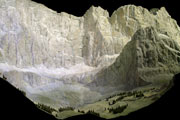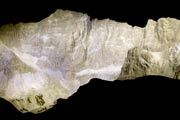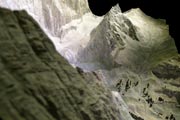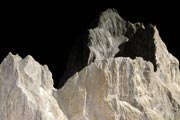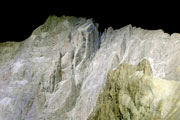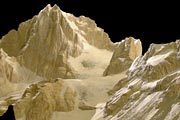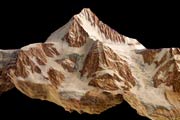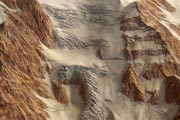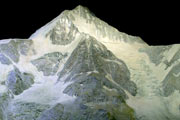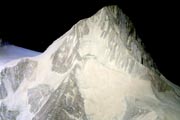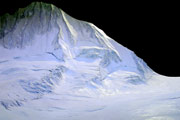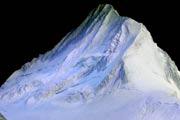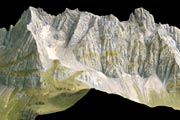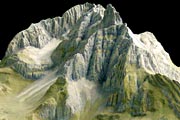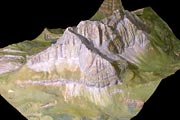Eduard Imhof (1895–1986) [1]

Eduard Imhof founded the Institute of Cartography of ETH Zurich and was its first professor. He created two monumental large-scale plaster models of the mountains Bietschhorn and Grosse Windgälle. The models were exhibited at the Swiss national exhibition in 1939 in Zurich. The two models show painted rock faces in brilliant quality. Both are in a scale of 1:2,000, and measure
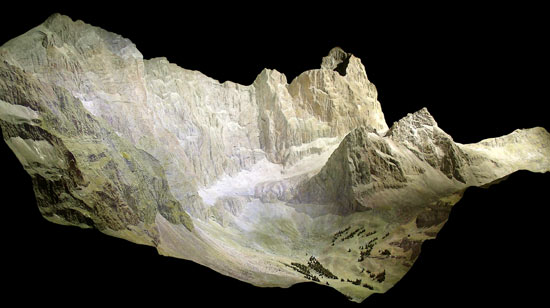
Imhof benefitted from the technical evolution and from high-quality topographical data. For the Windgälle model, he used photogrammetric maps at 1:25,000. For the Bietschhorn, he used the results of a survey at 1:5,000 with an equidistance of 10 m, which was specially made for this purpose. Additionally, he had access to a large amount of terrestrial photogrammetric images, and a lot of detailed aerial photographs, which were particularly made for this project. Geological maps and profiles, own drawings and photos also served as base material.
In addition, Imhof created a model of the Mürtschenstock in 1:10,000 (45 x 30 cm). This was his first model, built between 1920 and 1922.
[1] This article mainly bases on Imhof, Eduard. Entwicklung und Bau topographischer Reliefs. 1939. S.291-295.

